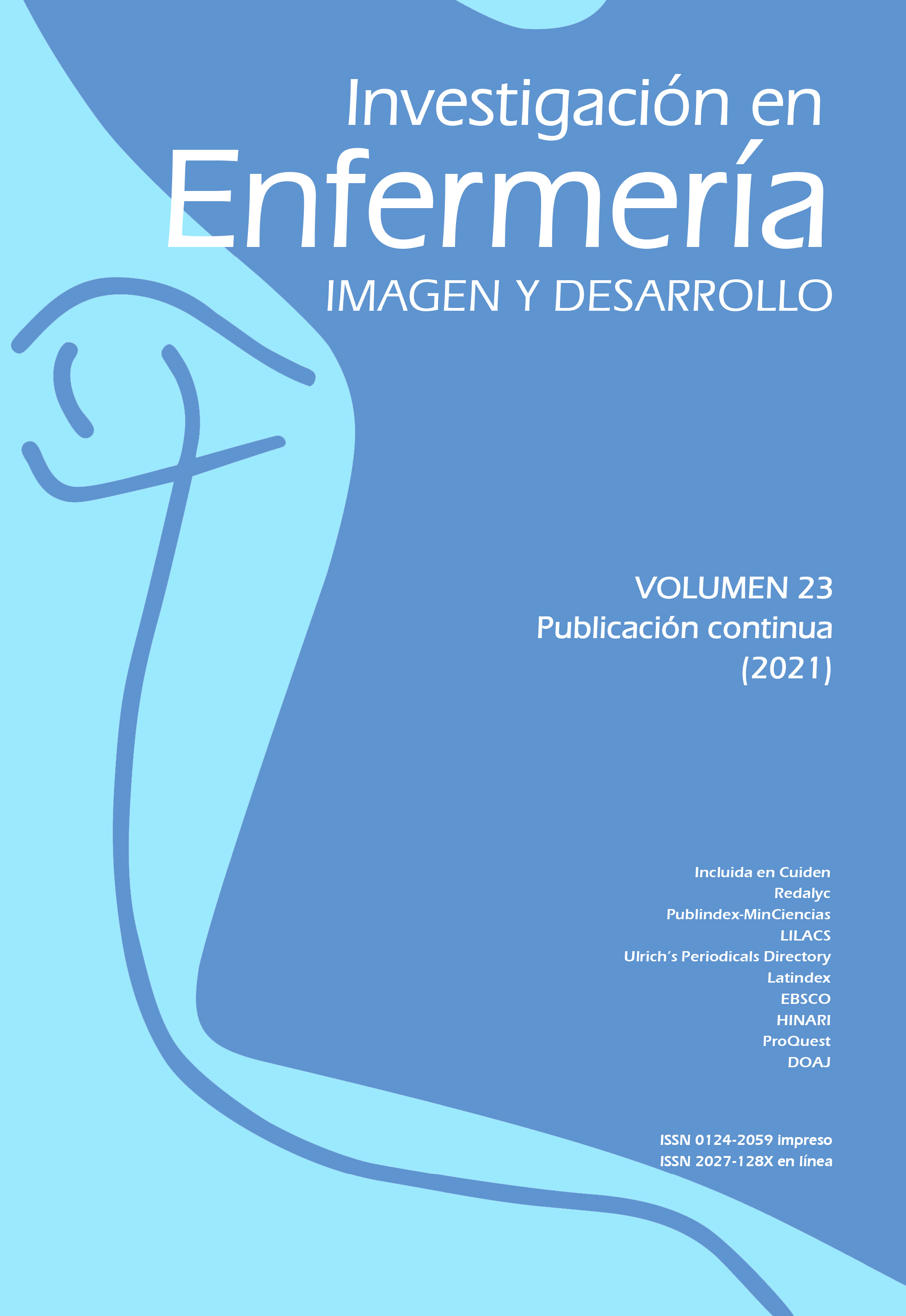Abstract
Abstract
Introduction: Interprofessional education is an initiative educative, formative and learning that involve to more than one profession of health to learning together and interactivity. Human health resource formation has a challenge in the solutions to shortage of sanitary personal in worldwide, and to form professionals with optimum performance. Objetive: To characterize the publications on interprofessional education and patient safety. Methods. A systematic review was conducted of the scientific literature in Pubmed, Science Direct, SciELO, LILACS, and Google Scholar with seven search strategies, guaranteeing completeness and replicability, following the phases of the PRISMA guidelines. Results: The review included n=33 studies on interprofessional education and n=19 (57,5 %), were applied in Hospitals and a total of n=14 (42,4 %) used quasiexperimental methodologies, of them, n=4 (12,2 %) studies measured outcomes direct on patient safety and others 29 (87,8 %), were focused in outcomes related to improve in communication, perception and knowledge in work teams. The majority of the studies applied interventions in simulated shows improving in the knowledge in patient safety and communication with the work team. Conclusion: learning interprofessional improve the communication and the interactions among healthcare professionals. Generalization of the studies was limited, because the several methodologies for the interactions in professional in the different studies were evaluated
World Health Organization. Framework for action on interprofessional education and collaborative practice. Geneva: WHO; 2010.
Thistlethwaite JE. Interprofessional education. J Clin Nurs. 2008;17(4):425-6. https://doi.org/10.1111/j.1365-2702.2007.02161.x
Thistlethwaite J. Interprofessional education: a review of context, learning and the research agenda. Med Educ. 2012;46(1):58-70. 10.1111/j.1365-2923.2011.04143.x
Thistlethwaite J. Interprofessional education: 50 years and counting. Med Educ. 2012 Ene;50(11):1082-6. https://doi.org/10.1111/medu.12959
Frenk J, Chen L, Bhutta ZA, Cohen J, Crisp N, Evans T, et al. Health professionals for a new century: transforming education to strengthen health systems in an interdependent world. Lancet. 2010 Nov;376(9756):1923-58. https://doi.org/10.1016/S0140-6736(10)61854-5
Menezes F, Rodrigues F, Cassiani S. Interprofessional health education in the region of the Americas. Rev. Latino-Am. Enfermagem. 2018;26:e3013. https://doi.org/10.1590/1518-8345.0000.3013
Zwarenstein M, Reeves S, Barr H, Hammick M, Koppel I, Atkins J. Interprofessional education: effects on professional practice and health care outcomes. Cochrane Database Syst Rev. 2001;(1):CD002213. https://doi.org/10.1002/14651858.CD002213
Reeves S, Pelone F, Harrison R, Goldman J, Zwarenstein M. Interprofessional collaboration to improve professional practice and healthcare outcomes. Cochrane Database Syst Rev.6:CD000072.
Reeves S, Clark E, Lawton S, Ream M, Ross F. Examining the nature of interprofessional interventions designed to promote patient safety: a narrative review. Int J Qual Health Care. 2017 Abr;29(2):144-50. https://doi.org/10.1093/intqhc/mzx008
Poling D, Labarbera D, Kiersma M. Does interprofessional education change student attitudes about interprofessional learning and patient safety? Health, Interprofessional Practice and Education. 2015;2(3):eP1074. http://doi.org/10.7772/2159-1253.1074
Liaw SY, Zhou WT, Lau TC, Siau C, Chan SW. An interprofessional communication training using simulation to enhance safe care for a deteriorating patient. Nurse Educ Today. 2014 Feb;34(2):259-64. http://doi.org/10.1016/j.nedt.2013.02.019
Vandenbroucke JP., Von Elm E, Altman DG, Gøtzsche PC, Mulrow CD, Pocock SJ, et al. Mejorar la comunicación de estudios observacionales en epidemiología (STROBE): explicación y elaboración. Gac Sanit. 2009 Abr; 23(2):158e1-158e28.
Sauter TC, Hautz WE, Hostettler S, Brodmann-Maeder M, Martinolli L, Lehmann B, et al. Interprofessional and interdisciplinary simulation-based training leads to safe sedation procedures in the emergency department. Scand J Trauma Resusc Emerg Med. 2016;24:97. https://doi.org/10.1186/s13049-016-0291-7
James TA, Page JS, Sprague J. Promoting interprofessional collaboration in oncology through a teamwork skills simulation programme. J Interprof Care. 2016;30(4):539-41. https://doi.org/10.3109/13561820.2016.1169261
Wong AH, Gang M, Szyld D, Mahoney H. Making an “attitude adjustment”: using a simulation-enhanced interprofessional education strategy to improve attitudes toward teamwork and communication. Simul Healthc. 2016 Abr;11(2):117-25. https://doi.org/10.1097/SIH.0000000000000133
Nagelkerk J, Peterson T, Pawl BL, Teman S, Anyangu AC, Mlynarczyk S, et al. Patient safety culture transformation in a children's hospital: an interprofessional approach. J Interprof Care. 2014;28(4):358-64. https://doi.org/10.3109/13561820.2014.885935
Wilson AJ, Palmer L, Levett-Jones T, Gilligan C, Outram S. Interprofessional collaborative practice for medication safety: Nursing, pharmacy, and medical graduates’ experiences and perspectives. J Interprof Care. 2016 Sep;30(5):649-54. https://doi.org/10.1080/13561820.2016.1191450
Cox M, Cuff P, Brandt B, Reeves S, Zierler B. Measuring the impact of interprofessional education on collaborative practice and patient outcomes. J Interprof Care. 2016;30(1):1-3. https://doi.org/10.3109/13561820.2015.1111052
Brock D, Abu-Rish E, Chiu CR, Hammer D, Wilson S, Vorvick L, et al. Interprofessional education in team communication: working together to improve patient safety. Postgrad Med J. 2013 Nov;22(5):414-23. https://doi.org/10.1136/postgradmedj-2012-000952rep
Foronda C, MacWilliams B, McArthur E. Interprofessional communication in healthcare: An integrative review. Nurse Educ Pract. 2016;19:36-40. https://doi.org/10.1016/j.nepr.2016.04.005
Evans AM, Ellis G, Norman S, Luke K. Patient safety education - a description and evaluation of an international, interdisciplinary e-learning programme. Nurse Educ Today. 2014 Feb;34(2):248-51. https://doi.org/10.1016/j.nedt.2013.03.009
Lisbon D, Allin D, Cleek C, Roop L, Brimacombe M, Downes C, et al. Improved knowledge, attitudes, and behaviors after implementation of teamstepps training in an academic emergency department: a pilot report. Am J Med Qual. 2016;31(1):86-90. https://doi.org/10.1177/1062860614545123

This work is licensed under a Creative Commons Attribution 4.0 International License.
Copyright (c) 2021 Investigación en Enfermería Imagen y Desarrollo


